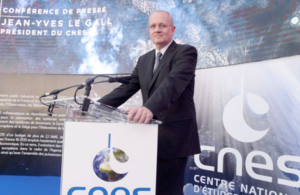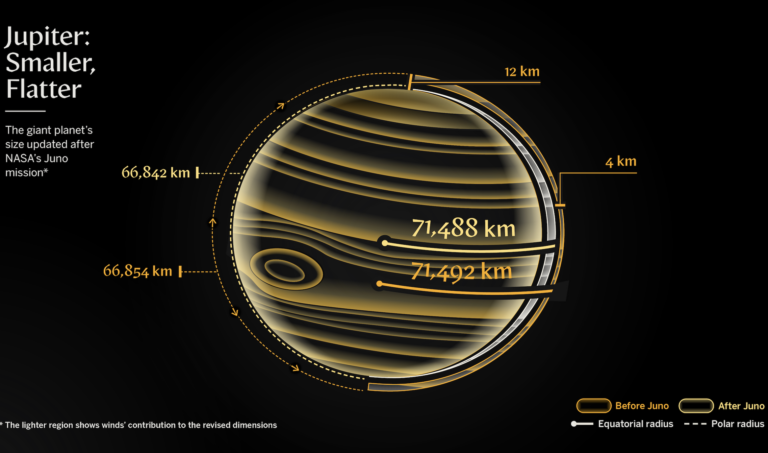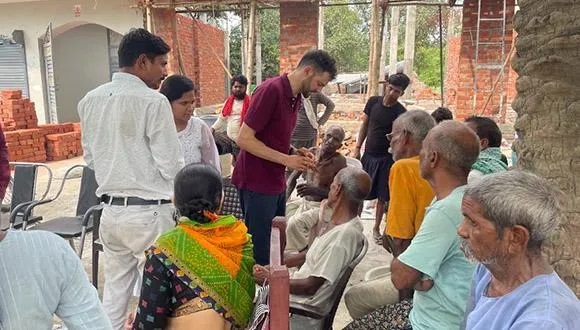France – Israël : coopération spatiale, le CNES participe à la 16ème conférence Ilan Ramon, végétation, climat…

[:fr]
Mardi 26 janvier 2021, Jean-Yves Le Gall, Président du CNES, est intervenu à la session vouée aux témoignages sur les partenariats publics privés, lors de la 16ème “Ilan Ramon International Conference”, organisée, cette année en format virtuel, par l’Agence Spatiale Israélienne, dans le cadre de l’Israel Space Week.
Jean-Yves Le Gall a ainsi rappelé que le CNES, en tant qu’agence spatiale de programmation et centre technique de terrain, est à la croisée des chemins entre l’industrie, la communauté scientifique et d’autres agences spatiales partenaires, ce qui, complété par une dynamique internationale garantit, la réalisation de systèmes spatiaux de pointe pour répondre à la science, tout en alimentant l’innovation.
Le Président du CNES a illustré ses propos en citant deux exemples concrets conduits avec l’ISA :
– La mission Venµs (Vegetation and Environment monitoring on a New Microsatellite) qui embarque d’une part, une mission scientifique qui fait progresser la compréhension du changement climatique et de ses impacts et d’autre part, une mission technologique qui qualifie une technologie de propulsion électrique israélienne.
– La mission C3IEL (Cluster for Cloud Evolution, ClImatE and Lightning), consacrée à la détection de l’évolution des nuages, du climat et de la foudre, qui constituera une première au niveau mondial, d’un point de vue scientifique et technologique, en combinant l’observation de la vapeur d’eau et des éclairs.
Jean-Yves Le Gall a souligné que, depuis 60 ans, le CNES conduit une politique industrielle stratégique pour soutenir la compétitivité de l’écosystème spatial afin de continuellement renforcer l’avance technologique, sachant adapter ses processus et ses outils pour accompagner le secteur industriel de l’amont à l’aval, des maîtres d’œuvre aux PME et start-ups. Il a notamment mentionné les succès de ActInSpace avec la création de 34 projets en entreprises et de ConnectByCnes qui fait appel à toutes les parties prenantes de la chaîne d’innovation et à l’expertise d’un réseau d’ingénieurs développant de nouvelles applications.
Le Président du CNES a précisé que l’évolution de l’économie du secteur spatial est axée sur les données spatiales en complément des infrastructures et il a conclu son intervention en soulignant que l’investissement gouvernemental reste incontournable même si la frontière entre le public et le privé s’estompe de plus en plus. La société KINEIS illustre parfaitement ces nouveaux paradigmes dans les services géo localisés et cette approche public privé, avec le CNES et CLS comme actionnaires clés.
[:en]
Tuesday 26 January, CNES President Jean-Yves Le Gall was invited to take part in the panel session on public-private partnerships at the 16th Ilan Ramon International Conference, organized this year in virtual format by the Israel Space Agency (ISA) as part of Israel Space Week.
Jean-Yves Le Gall began by pointing out that as a programme-led space agency and technical field centre, CNES is at the crossroads between industry, the scientific community and other partner space agencies, thus guaranteeing, in addition to its international reach, state-of-the-art space systems for science while fuelling innovation.
CNES’s President illustrated this with two concrete examples accomplished with ISA:- VENμS (Vegetation and Environment monitoring on a New Microsatellite) is performing a science mission to advance understanding of climate change and its impacts, and a technology mission to qualify an Israeli electric propulsion technolog- C3IEL (Cluster for Cloud Evolution, ClImatE and Lightning), a mission devoted to sensing cloud evolution, climate and lightning, a scientific and technological world first that will combine observations of water vapour and lightning.
Jean-Yves Le Gall underlined that for 60 years CNES has pursued a strategic industrial policy to sustain the space ecosystem’s competitiveness and maintain the nation’s technological edge, adapting its processes and tools to support industry throughout the value chain, from prime contractors to SMEs and start-ups. He notably mentioned the success of ActInSpace, which has turned 34 projects into businesses, and ConnectByCnes, which is leveraging all stakeholders in the innovation chain and the expertise of a network of engineering teams to develop new applications.
CNES’s President noted that the space sector is set to evolve towards a data-driven economy rather than one reliant on infrastructure. He concluded by underlining that government investment remains vital, even if the line between public and private is becoming increasingly blurred. A perfect illustration of these new paradigms in the field of location-based services and this public-private approach is KINEIS, a firm in which CNES and CLS are key shareholders.
[:]







